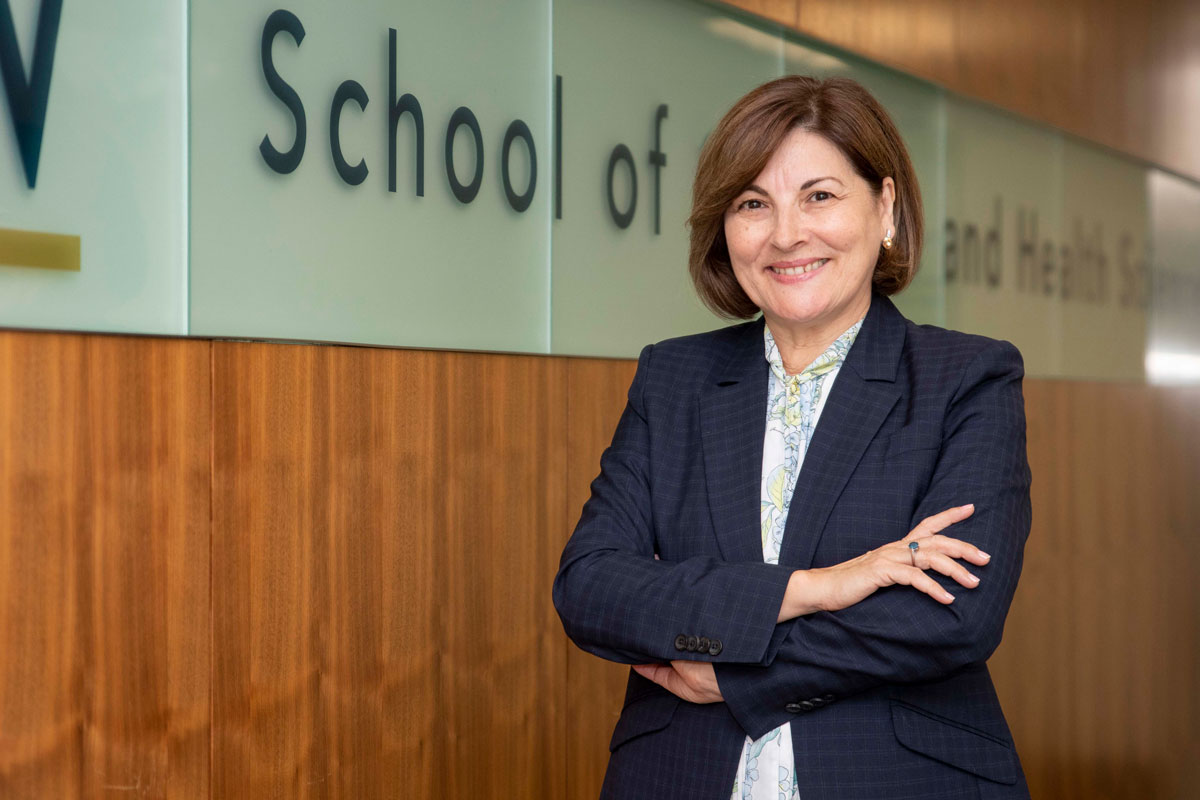Information Is Power in Fighting This Virus, and Testing Plays a Key Role

Antonia R. Sepulveda, MD, PhD,
Professor and Chair of the Department of Pathology at The George
Washington University School of Medicine & Health Sciences.
September 8, 2020
We asked experts at GW Hospital to educate us about COVID-19 – from immediate concerns today to the future impact of the disease and ways to stop the spread of the virus. Here, Antonia R. Sepulveda, MD, PhD, Professor and Chair of the Department of Pathology at The George Washington University School of Medicine and Health Sciences, addresses questions about testing and why it's so important.
Other Q&As include microbiologist Sanjay B. Maggirwar, PhD, MBA, discussing how the virus enters and impacts the body, and infectious diseases specialist Hana Akselrod, MD, MPH, addressing topics such as immunities and vaccines.
Q&A with Antonia R. Sepulveda, MD, PhD
This Q&A was originally conducted in late March/early April, and updated in early July.
Q: How are you working with the multidisciplinary team at GW to address critical testing needs?
The trying times of COVID-19 have put us through humbling experiences, where we as a system need to work together in unparalleled ways. My goal as a pathologist is to use the right test for the right patient at the right time. For example, we devised testing algorithms so that our inpatients and women in the labor and delivery service are tested with our rapid SARS-CoV-2 assay, whereas healthcare workers who had a COVID exposure but are asymptomatic are tested with another PCR assay available in our laboratory and will receive their test results within 24 hours. In contrast, commercial laboratories take several days to send results back.
Q: What does this continued focus on testing mean for patients and hospital staff?
The availability of SARS-CoV-2 testing on-site, in the hospital laboratory, during this crisis is a game-changer and greatly enhances our practices. Having these capabilities on-site allows us to provide timely testing to our patients and healthcare workers. Additionally, we continue to build on our capabilities. As of June 2020, we have implemented SARS-CoV-2 viral PCR testing in the GW Hospital clinical laboratory using four different platforms, each serving a unique but complementary testing role. Importantly, the availability of multiple testing platforms provides greater flexibility to support our testing needs.
Think you have COVID-19?
If you have symptoms of COVID-19 or have had close contact with someone who has had a confirmed positive COVID-19 test result, please seek medical attention by calling your provider’s office. Virtual appointments are available with a GW healthcare provider.
How to get tested ↗
Q: What lessons can be learned from COVID-19, and why is testing so important?
This crisis has truly brought so many lessons to reflect upon. We have learned how fragile the supply chain is and how the shortage of reagents and supplies can impact clinical practice. Testing is critical not only to identify and treat those infected, and prevent them from spreading it to others, but also to know who may have already been infected. Especially as communities reopen, testing for antibodies to SARS-CoV-2 will become valuable to confirm that a patient has a recent or past infection and to inform about how many individuals in the population have been infected. Antibody testing can also be used to select potential donors of convalescent plasma – a serum obtained from recovered patients, which is considered to be especially rich in antibodies and is being investigated for the treatment of COVID-19.
 Antonia R. Sepulveda, MD, PhD, is the Chair of the Department of Pathology at The George Washington University School of Medicine and Health Sciences. She also Chief of Pathology and Director of Clinical Laboratories at GW Hospital, leading a highly skilled team of pathologists and scientists in the implementation and testing for severe acute respiratory syndrome coronavirus 2 (SARS-CoV-2) – the cause of COVID-19.
Antonia R. Sepulveda, MD, PhD, is the Chair of the Department of Pathology at The George Washington University School of Medicine and Health Sciences. She also Chief of Pathology and Director of Clinical Laboratories at GW Hospital, leading a highly skilled team of pathologists and scientists in the implementation and testing for severe acute respiratory syndrome coronavirus 2 (SARS-CoV-2) – the cause of COVID-19.
